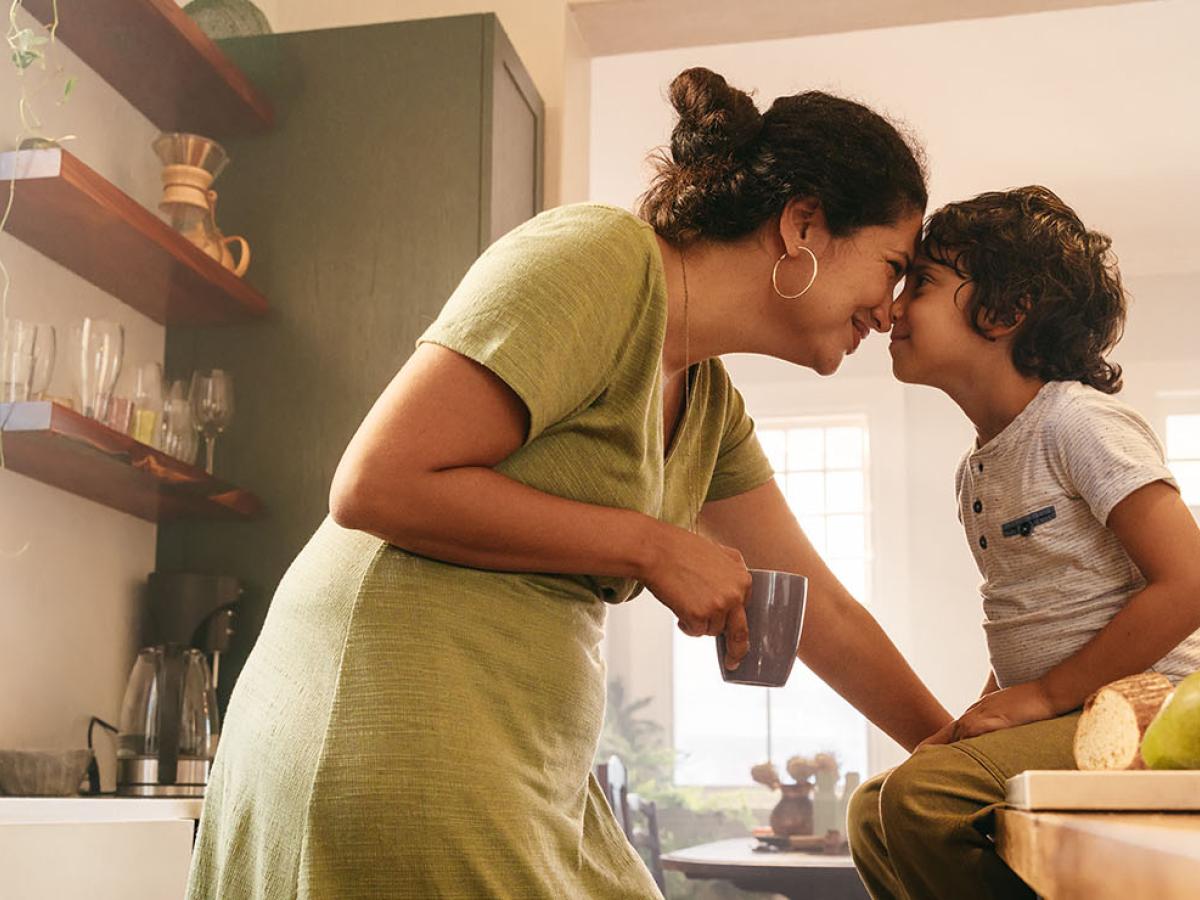November 20, 2024

Feeling stressed as a parent is not a new concept — it comes with the territory, right? After all, you’re attending to every need of another human (or more) while still adulting.
But recent research suggests that one out of every three parents experience high levels of stress — the kind that, if left unchecked, can lead to increased risk for chronic diseases and mental health issues. Fifty percent of parents report that their stress is completely overwhelming on most days, while only one in five non-parents report that type of ongoing stress.

The findings are so alarming that the Office of the Surgeon General issued an advisory calling for a societal shift to prioritize the mental health and well-being of parents.
“We are talking about mental health more now than we did 10 or 15 years ago,” says Dr. Laine Young-Walker, a child and adolescent psychiatric specialist at MU Health Care. “The warning pushes for better support of parents and caregivers so that families — and ultimately, communities — will thrive.”
On an individual level, Dr. Young-Walker says every parent should be assessing and managing their stress levels. She shares six things you need to know about stress and parenting:
1. Not All Parental Stress Is Created Equal
Stress during parenthood isn’t just about getting dinner on the table or being in three places at once so your kids don’t miss anything. Stress can simmer, and many factors can bring it to a boil.
Heightened parental stress can stem from many things, including:
- Cultural responsibilities, concerns or pressures
- Financial strain or economic instability
- Health issues (mental or physical) experienced by children, grandparents, a spouse or yourself
- Isolation or loneliness
- Safety concerns, either personal or related to school violence
- Social pressure amplified by social media and technology
- Time demands from children, work and community responsibilities
As a parent, you typically deal with a combination of stressors. The weight of it all can push you to your limit.
“Parental stress is not black and white,” Dr. Young-Walker says. “No guideline says, ‘When this happens, you’ll feel stressed.’ When your external or internal pressures — whatever they may be — leave you unable to cope, that’s when there’s a problem.”
2. Parental Stressors Change as Children Age
With each childhood developmental stage, a caregiver’s role and responsibility changes. Some parental tasks may cause physical exhaustion. Others may take a toll on your mental and emotional health.
Dr. Young-Walker says parenting children under 18 typically involves three broad stages:
- Early childhood: This stage may involve a lack of sleep, constantly feeling overwhelmed, financial strain and self-doubt (“Am I doing this right?”). Relationships with your partner and friends may also change.
- Middle childhood: Kids go through transitions with school, learning and friendships. You’re balancing busy schedules and dealing with academic and social challenges.
- Teen years: You may be coping with your child’s desire for independence and managing risk-taking behaviors and peer influences.
“It will look different with each child,” Dr. Young-Walker says. “And as unexpected things happen along the way, it can change your family dynamic and role as a parent.”
3. Internal Stressors Are Very Real
Guilt, self-doubt, comparison and negative thinking are internal pressures that we unconsciously create, and they can be powerful. And if you are scrolling on your phone to relax, you may actually be compounding the problem — as social media has become a prominent fixture in our lives, internal stress has increased.
“What you see on the outside is not always what’s happening on the inside,” Dr. Young-Walker says. “We compare ourselves to people based on what we see on social media, and we don’t always know the reality of what is really going on in their lives.”
Social media ads about how to eat better, stay organized, get in shape or beautify your home can also add stress. You may feel like you need to add all of that to your to-do list.
4. High Parental Stress Impacts You and Your Children
Ongoing stress can affect you physically, mentally and socially. It can also affect your children.
“Your mental health plays a role in your child’s cognitive and social development,” Dr. Young-Walker says. “Even an infant can sense when a parent is stressed or upset, and it can impact their ability to regulate their emotions.”
However, Dr. Young-Walker adds that you shouldn’t hide your stress or worry — it’s OK to let your child see your emotions, and it’s a good opportunity to model how you’ll manage them.
“Kids are resilient,” she says. “But it’s always a good idea to sit down with your child and explain that you are stressed and having a bad day and didn’t mean to snap at them. It shows them that it’s OK to feel a certain way sometimes.” You just don’t want sometimes stress to turn into all-the-time stress.
5. It’s Critical to Recognize Your Stress Tipping Point
Everyday stress can quickly become overwhelming — you can’t always keep that from happening. But if you see that you are nearing your limit, you can take steps to reduce your mental load.
“Pay attention to your ability to react to normal stress,” Dr. Young-Walker says. “If it gets to a point where you can’t manage your stress using your go-to coping skills, your stress has reached a high level.”
You may also be experiencing higher-than-normal stress levels if you:
- Are acting out of character, such as lashing out or self-medicating
- Aren’t sleeping or have trouble falling asleep
- Can’t function, noticing you are forgetting or losing things and unable to think clearly
If you are having symptoms of high stress, your primary care doctor can recommend helpful resources or refer you to a mental health professional.
6. There Are Ways to Reduce or Prevent Parental Burnout and Stress
Dr. Young-Walker shares some things you can do to safeguard yourself from parental stress:
- Put yourself first: Healthy life choices and taking time to destress will pay off in the long term. Find a way to relax, take time to exercise and connect with friends.
- Create a network: Find other parents and caregivers that you can engage with. Online parent groups don’t require a significant time commitment but may help you feel less isolated.
- Take care of your finances: Financial strain can be stressful, especially in the face of a costly emergency. Try to get your finances under control. Secure insurance, especially health insurance, if you can. If you aren’t financially stable, your provider can connect you with community resources to help during your primary care physical.
- Know when to ask for help: Recognize the signs of mental health issues, such as depression or anxiety. If you are sad or irritable for over two weeks, have appetite and sleep disturbances, or notice increased negative thinking, consult a medical professional.
“It’s important for you to step back and see that you need to take care of yourself,” Dr. Young-Walker says. “If you don’t, it’s really challenging to care for everybody else.”
Next Steps and Useful Resources
- Want to discuss more with a primary care provider? Find one today.


